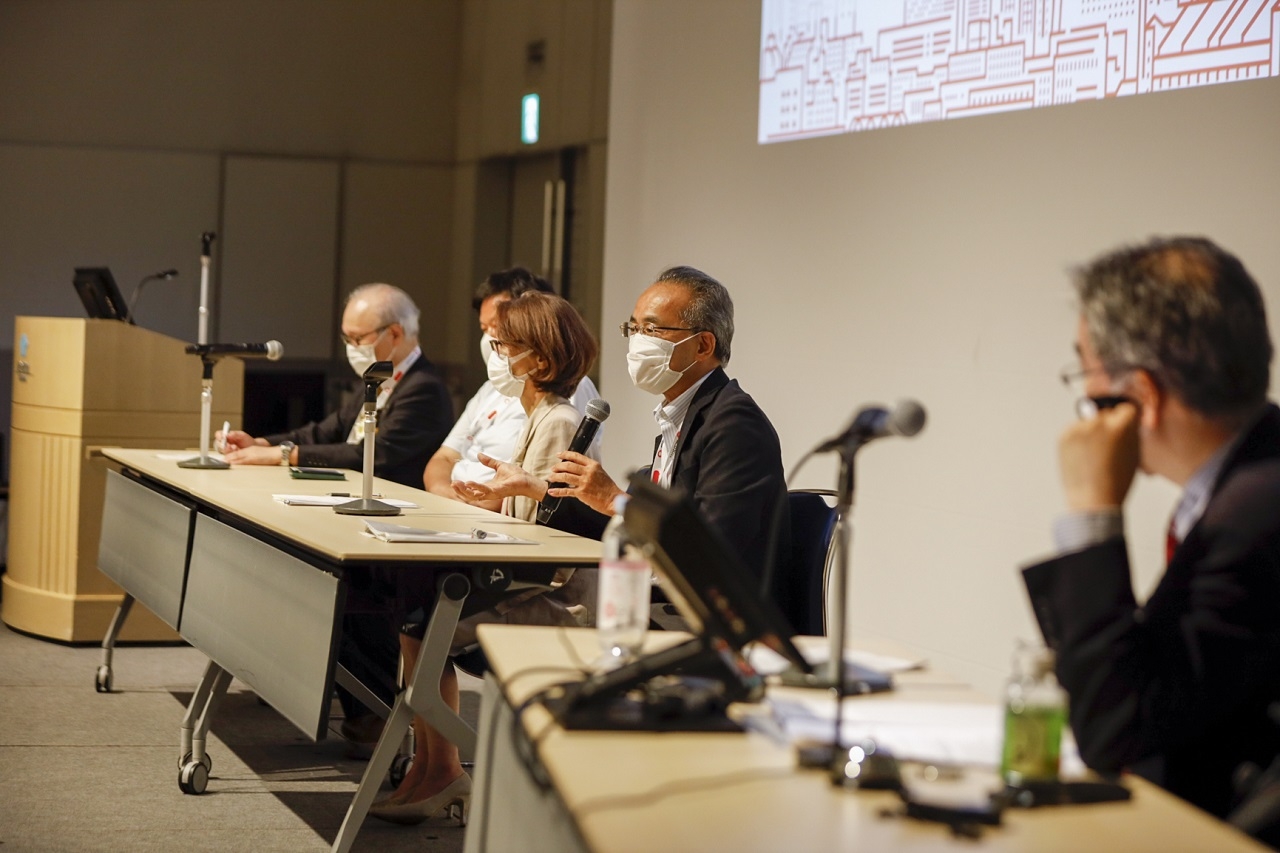【ACD2022 lecture report 2】
Four Organizations Announce Progress Toward Realizing Commitments for Tokyo Nutrition for Growth Summit 2021
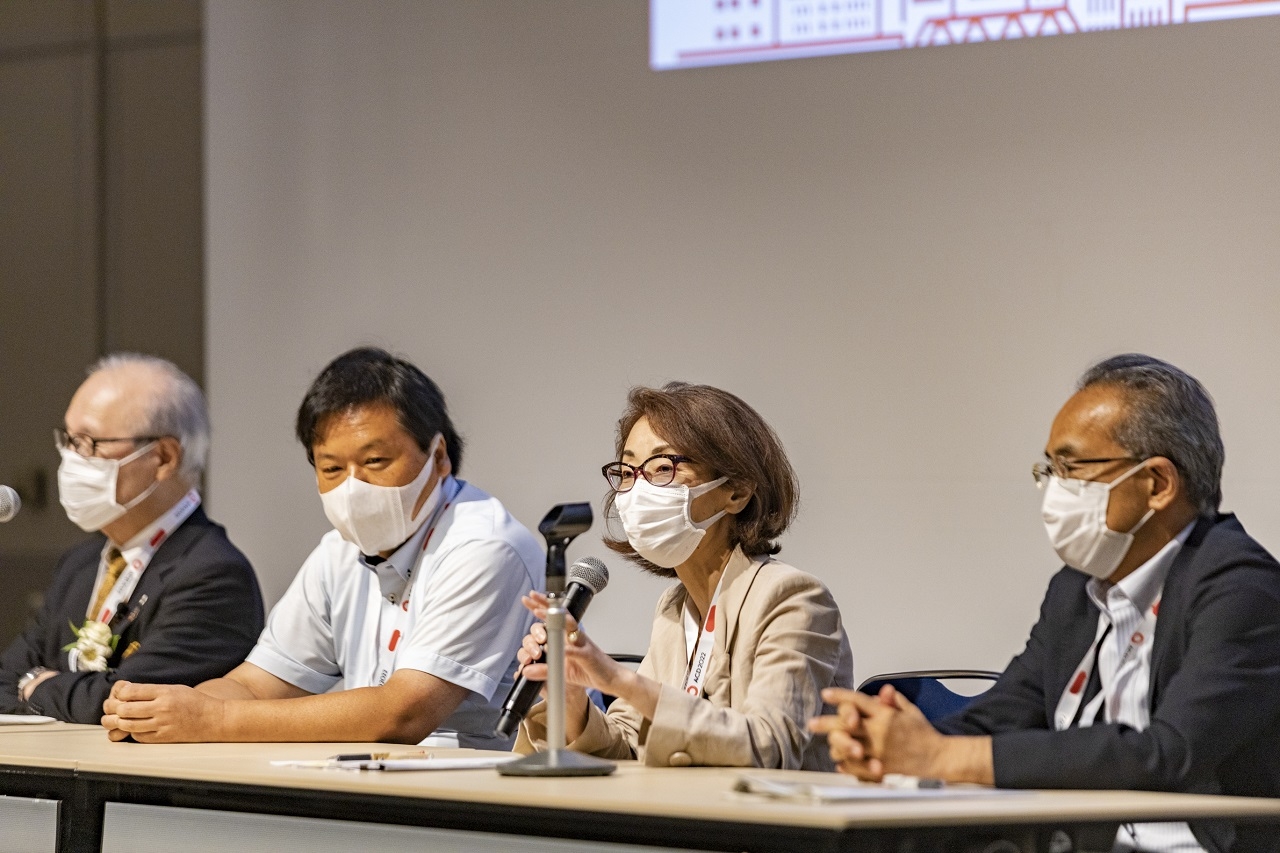
In Workshop 3 of the 8th Asian Congress of dietetics; ACD2022, there was a presentation and discussion on the progress of the commitments issued at the Tokyo Nutrition for Growth Summit 2021 held last December (2021).
The title of our workshop is " The Tokyo Nutrition Summit 2021: Realizing Our Commitments". The Tokyo Nutrition for Growth Summit 2021 raised 396 commitments from 181 stakeholders and over $27 billion to solve the world's nutrition challenges. Representatives from four of those stakeholders took the stage at this workshop to present their commitments and realities.
At the beginning of the session, the chairperson, Kouji Miura, Professor of Fujita Health University, said, "Commitment is not just a statement, but an obligation to be fulfilled. Today, we would like to hear from the speakers about how they are responding to their own commitments," he hoped.
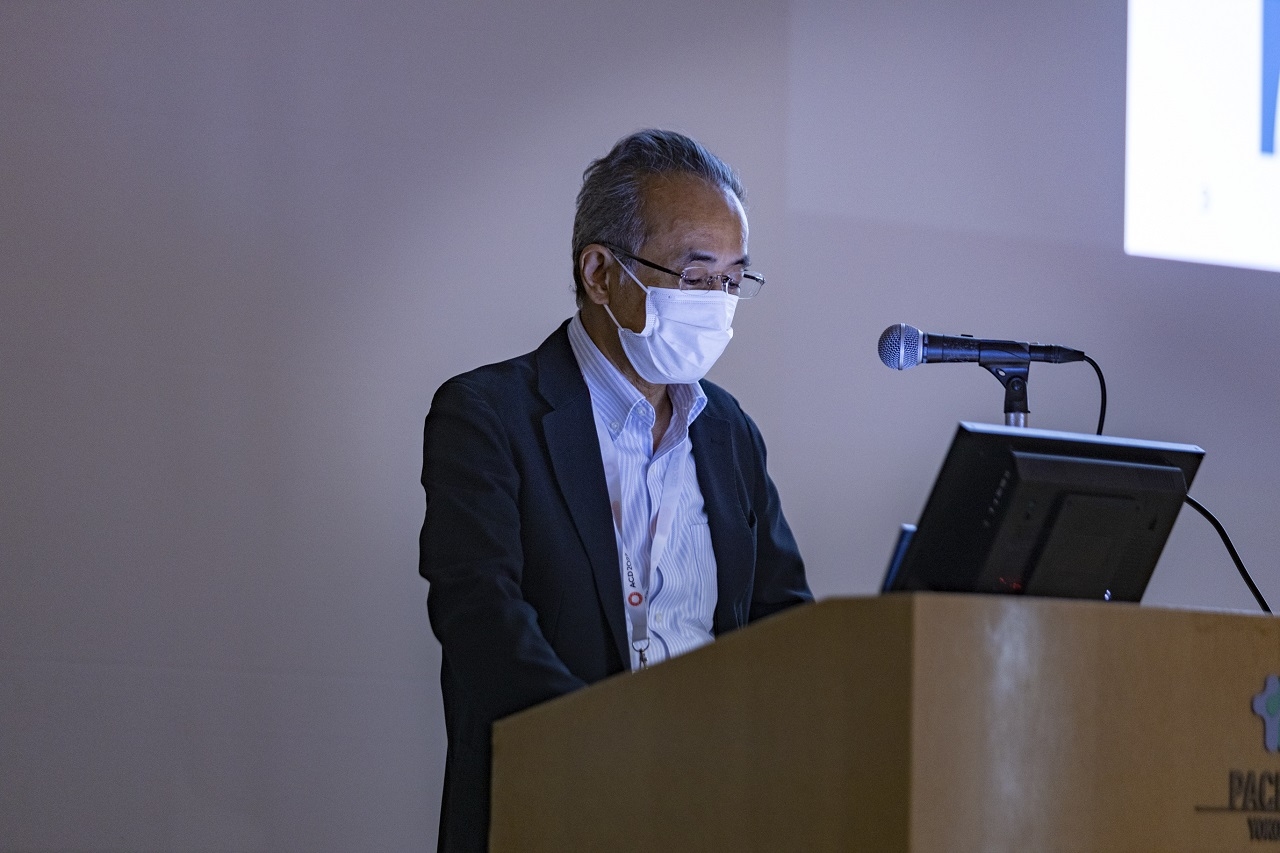
The first speaker was Shoichiro Tsugane, Director of the National Institute of Biomedical Innovation, Health and Nutrition, who spoke on "Food-based Dietary Guideline for Sustainable Healthy Diets: Lessons from the Japanese Diet and Food-based Dietary Guideline for Sustainable Healthy Diets: Lessons from Japanese Diet and Longevity toward SDGs". Mr. Tsugane began by stating, “Japan has issued dietary intake standards for Japanese for each nutrient, but the WHO is calling for food-based dietary guidelines that take sustainability into account. We have made a commitment to propose a new dietary guideline by 2030, and we would like to show the Japanese diet, which is considered healthy, based on scientific evidence so that it can serve as a model for Asia and the world".
He then informed that the current diet in Japan is high in eggs and red meat and low in whole grains and nuts compared to the "sustainable and healthy diet" recommended by the EAT-Lancet committee, but otherwise at about the same level as recommended. He continued, "Internationally, red meat and eggs are not consumed in large quantities, and the Japanese diet features fewer single portions of meat, which are eaten with vegetables. The habit of drinking green tea and less sugary beverages is also a good point, but the drawback is the high salt intake," announced the results of a number of surveys. And in order for the Japanese diet to remain sustainable, we must hurry to establish 'sustainable food-based dietary guidelines' because of the high intake of animal products among the younger generation, he emphasized.
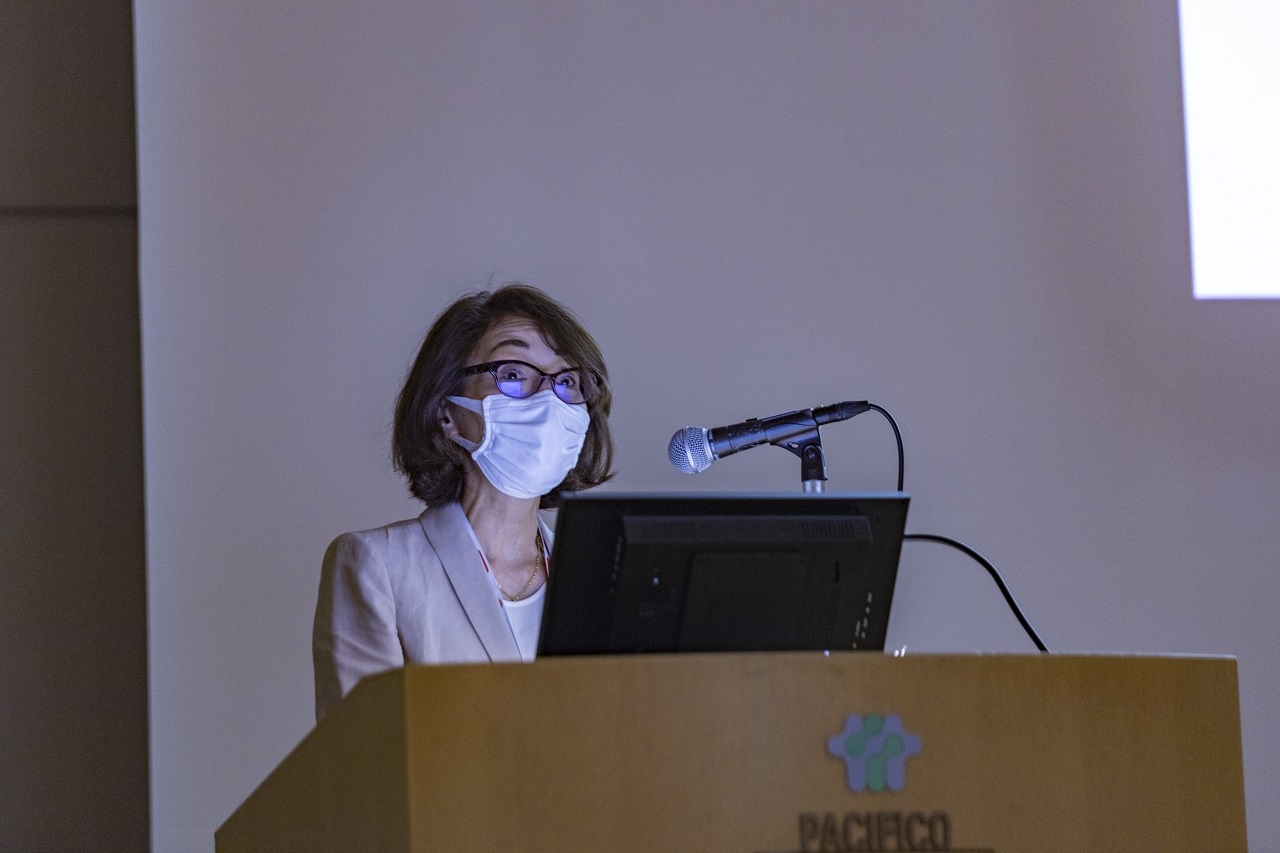
Next, Yukari Takemi, Professor of Kagawa Nutrition University, spoke on behalf of the Federation of Japanese Nutrition Societies (FJNS), "The Commitment and Its Progress of the Federation of Japanese Nutrition Societies ". The Federation of Japanese Nutrition Societies is an academic group of 15 societies related to nutrition in Japan and was established in 2017. Representatives from each society met and discussed for over a year and decided on two major commitments. The first is "to organize the vast amount of research results on solutions to Japan's nutrition challenges that have been conducted by various academic societies and demonstrate the effectiveness of the Japanese diet," and the second is "to develop human resources who can link research to practice to improve nutrition based on that evidence and contribute to solving the world's nutrition challenges". To develop these human resources, we will create programs such as e-learning and overseas dispatch and exchange, and "expect a total of more than 300 people to participate by 2030," explained Prof. Takemi. Currently, work is underway at various societies to organize the results of the research and to develop human resources, and she encouraged the audience to "...make this commitment together with not only researchers but also dietitians and nutritionists in the field, because nutritional science is meaningful only when it is put into practice".
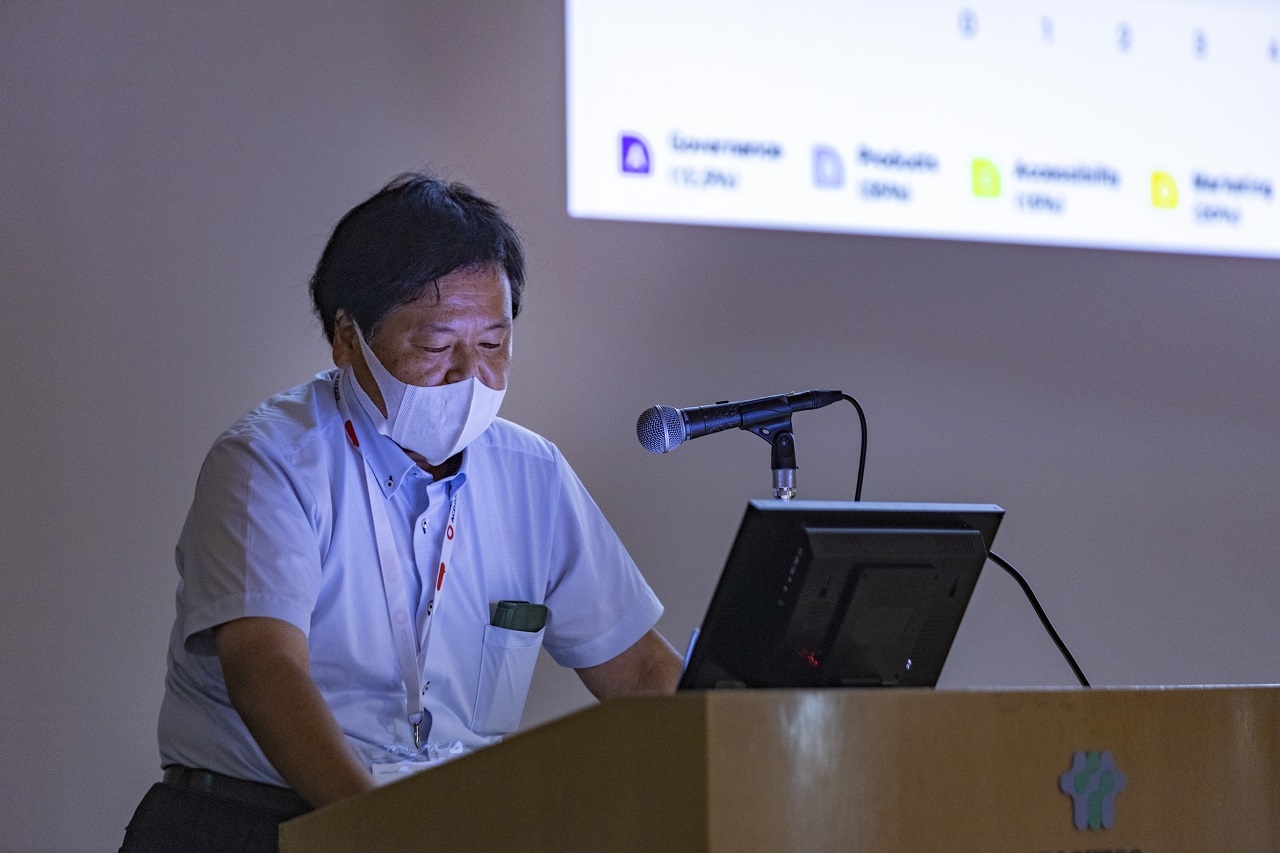
The third speaker, Hisayuki Uneyama of Ajinomoto Co.,Inc. , introduced the efforts of a private company with the topic "Nutritional Commitment of Ajinomoto Group-Nutrition Without Compromising Taste Toward Responsible Nutrition-". Mr. Uneyama spoke first of the historical background of "increasing responsibility as well as expectations for processed food companies," and explained the company's announced commitments, such as "increasing awareness of salt reduction through umami" and "increasing the percentage of products with enhanced nutritional value to 60% by 2030," as well as practical examples of how to solve these issues. He also said that the company intends to "fulfill its accountability for the environmental impact of its products and services" in order to balance nutrition and the environment in the future.
Nutrition professionals in every corner of society
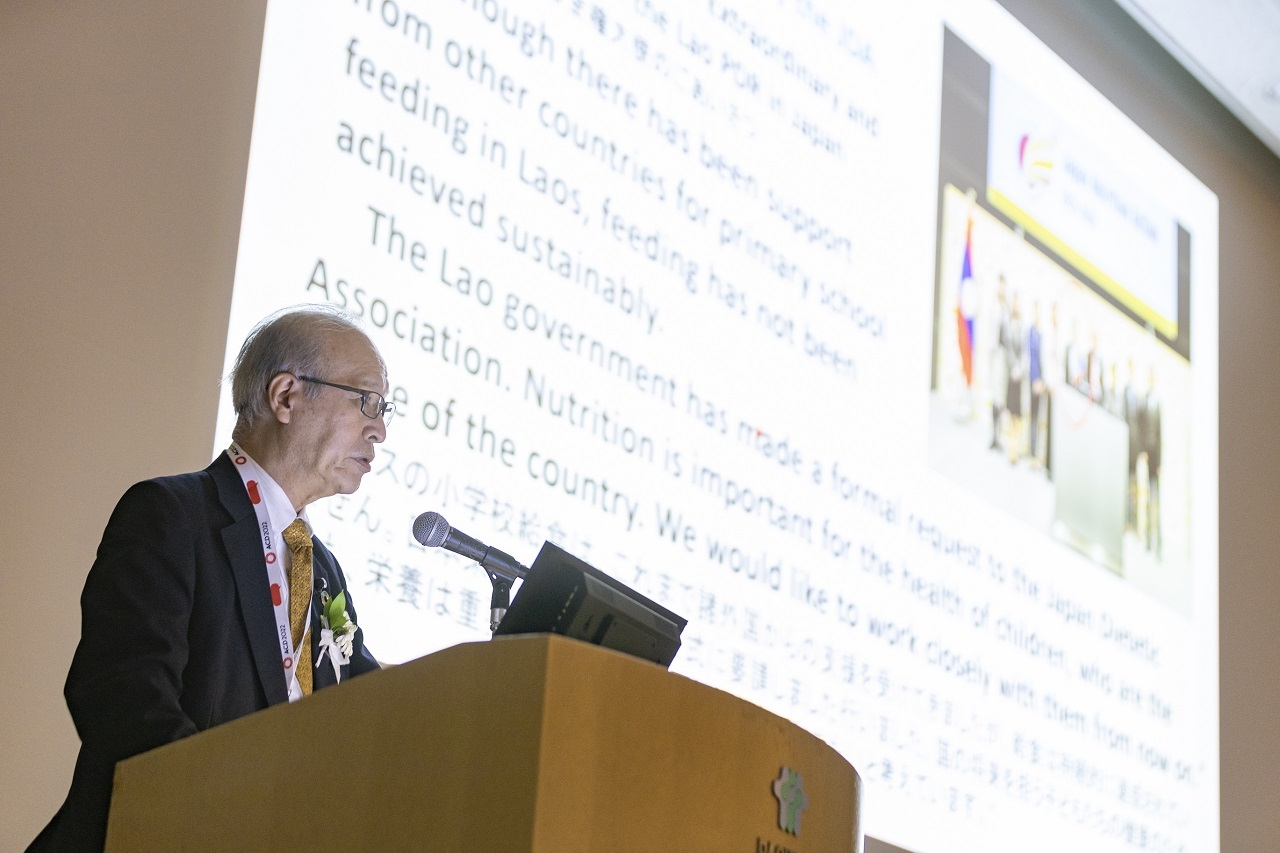
The last speaker was Dr. Teiji Nakamura, President of the Japan Dietetic Association, who gave a presentation entitled “Promote and Develop the Dietetic System in Asian Countries “. He began, "The double burden of malnutrition in Asian countries is compounded by the fact that poverty/nutritional deficiencies and overeating are occurring at the same time. I believe that the creation of a dietitian system can solve this problem". Then, after listing nine solutions to the nutrition challenge, he asserted, "Various means and methods are needed to solve the problem, but the most important thing is to develop human resources who can formulate, implement, and evaluate such policies".
The commitment announced by the Japan Dietetic Association is to "train and deploy nutrition professionals to build a foundation for sustainable nutrition improvement," which includes "(1) providing education and training for registered dietitians, dietitians, and other nutrition professionals to countries that have formally requested it, particularly in Asia, as well as the creation of a dietetic system and the establishment of a foundation for sustainable nutrition improvement, and (2) For countries that already have an existing dietitian system, we will support the upskilling of human resources through training, study abroad, etc.". At this workshop, Dr. Nakamura also emphasized the point of not only "training" nutrition professionals but also "deploying" them, stating that “the point of the Japan Dietetic Association's commitment is to deploy professional human resources to every corner of society".
The Nutrition Improvement Project in the Lao People's Democratic Republic (Lao PDR), which was officially requested by the Japan Dietetic Association (JDA), is scheduled for the first phase (2022-2024) to collect information on Laos and exchange human resources between the two countries, the second phase (2022-2025) to establish an independent school lunch system, the third phase (2025-2029) to train dietitians at educational institutions, and the fourth phase (2029-2030) to employ graduates ( dietitians). Dr. Nakamura explained the current status of the project, "We are preparing to start improving school lunches in 2023, and are about to hold an online symposium with Laotian stakeholders next month to organize the project by the end of this year (2022).
He shared his aspirations, "Japan's current healthy longevity is due to a national policy of placing nutrition specialists in every aspect of life and creating a society where all citizens have access to healthy food and nutrition. I would like to spread this throughout Asia."
Activities with the breadth and depth of "dietetics"
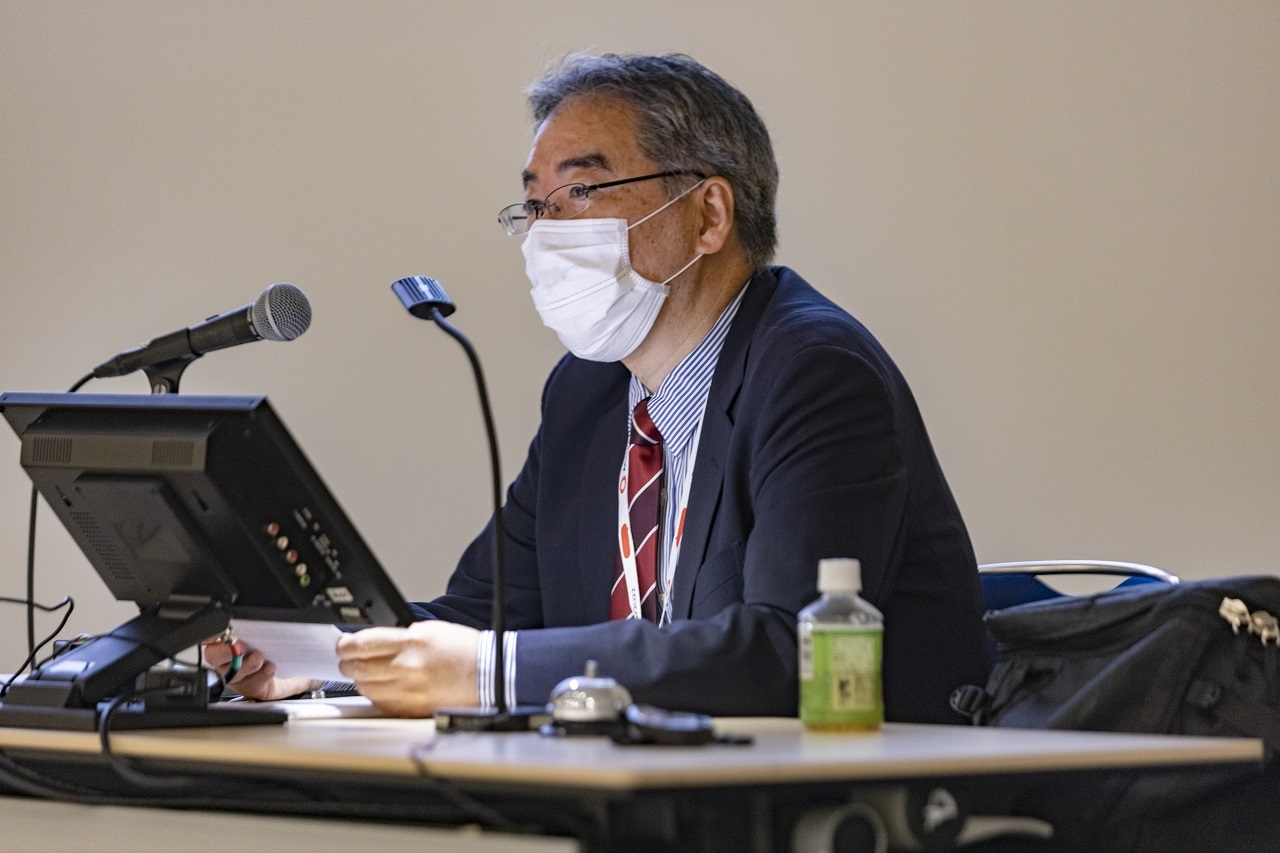
Finally, the chairperson, Dr. Miura, and the four members mentioned above took the podium to review the topics discussed at the workshop and exchange opinions.
Prof. Miura said, "The National Health and Nutrition Examination Survey has a long history. I think it was very difficult to continue it from the difficult postwar situation, but wouldn't it be possible to conduct it in many other countries now? It seems to me that we could provide technical assistance to other countries". In response, Mr. Tsugane said, "Japan is the only country that conducts such a survey every year, and although accurate, it requires a lot of labor, so the technology may not be easily transferred. Even in countries where surveys are conducted, such as the United Kingdom and South Korea, they are conducted once every few years. Japan also suspended the survey last year and the year before because of the heavy burden on health centers due to the Corona disaster. We are currently researching a survey method that is simpler and can provide more accurate data."
Mr. Tsugane added, "We often hear the view that the Mediterranean diet is good, but that is because a lot of evidence has been produced. We need to provide evidence of Japanese and Asian diets in English papers," he called for. Dr. Nakamura said, "The word 'dietetics' in the Asian Congress of Dietetics includes not only nutrition, but also culture, economy, and preferences. It is time to end ‘dietetics' that only follows Western standards, and to create Asian evidence based on the Asian situation. We need human resources to create evidence," agreed Mr. Tsugane.
In response, the chairperson, Prof. Miura, closed the workshop by saying, "In Japan, the word 'nutrition' has been used for many years, but I think this workshop helped us understand that it is important to work in the breadth and depth of 'dietetics' in the future.
